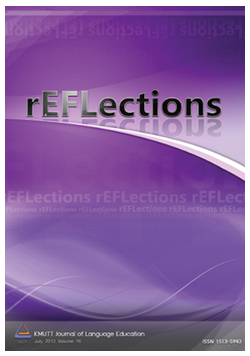Politeness Strategies in Criticisms and Responses in TESOL Quarterly Forum
Main Article Content
Abstract
Politeness is pervasive in human interaction and crucial for social cooperation so as to avoid offenses and communication breakdown. Indeed a number of studies have investigated politeness strategies in academic discourse, shedding light on how interaction in academic discourse involves extensive use of politeness strategies. This paper aims to extend this body of knowledge, looking into a genre that has rarely been studied. This paper investigates politeness strategies in “A Reader Responds” and “Authors Reply” in the Forum section of TESOL Quarterly journals which were published from 2005 to 2009, using Brown and Levinson’s (1987) politeness theory and Hyland’s (2000) mitigation strategies as analytical frameworks. Moreover, this paper proposes two new strategies: backgrounding FTA and attributing faults to the speaker. Data analysis indicates that the politeness strategies employed by both “A Reader Responds” and “Authors Reply” that were identified included: hedges, praisecriticism pairs, impersonalization, tense shift, assert a common ground, nominalize, rhetorical question, and backgrounding FTA. The strategies only found in “A Reader Responds” are overgeneralizing hearers and attributing faults to the speaker. In conclusion, this study finds that these academic genres are highly interactive and thus require many politeness strategies to deal with the issues of face which is at stake due to the nature of these genres.


